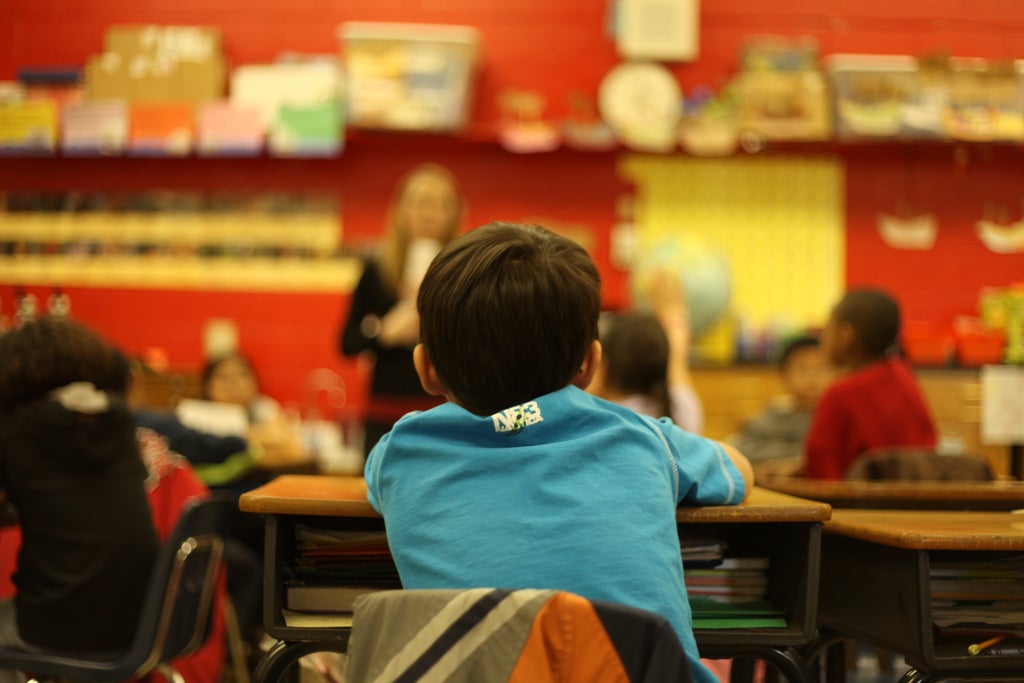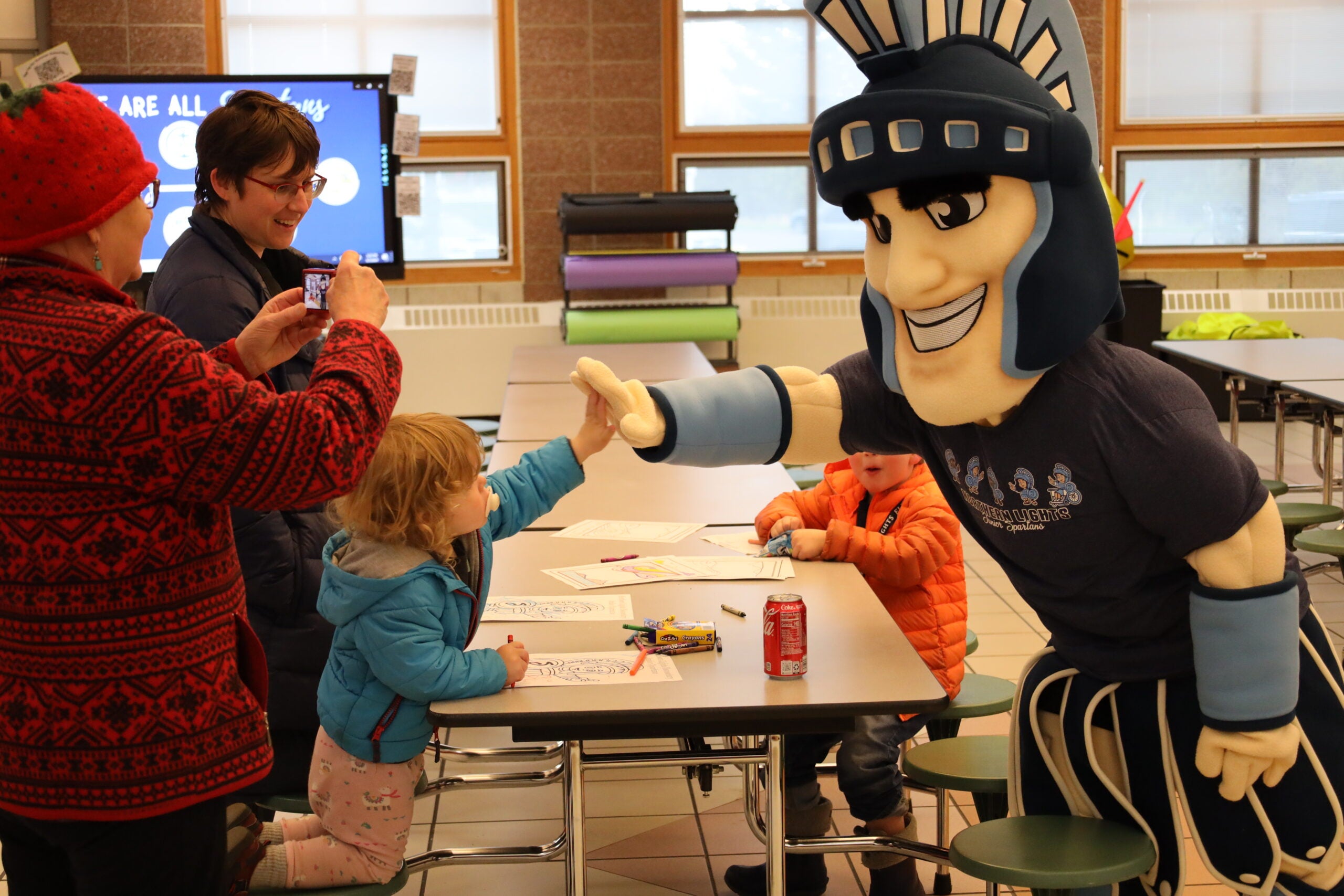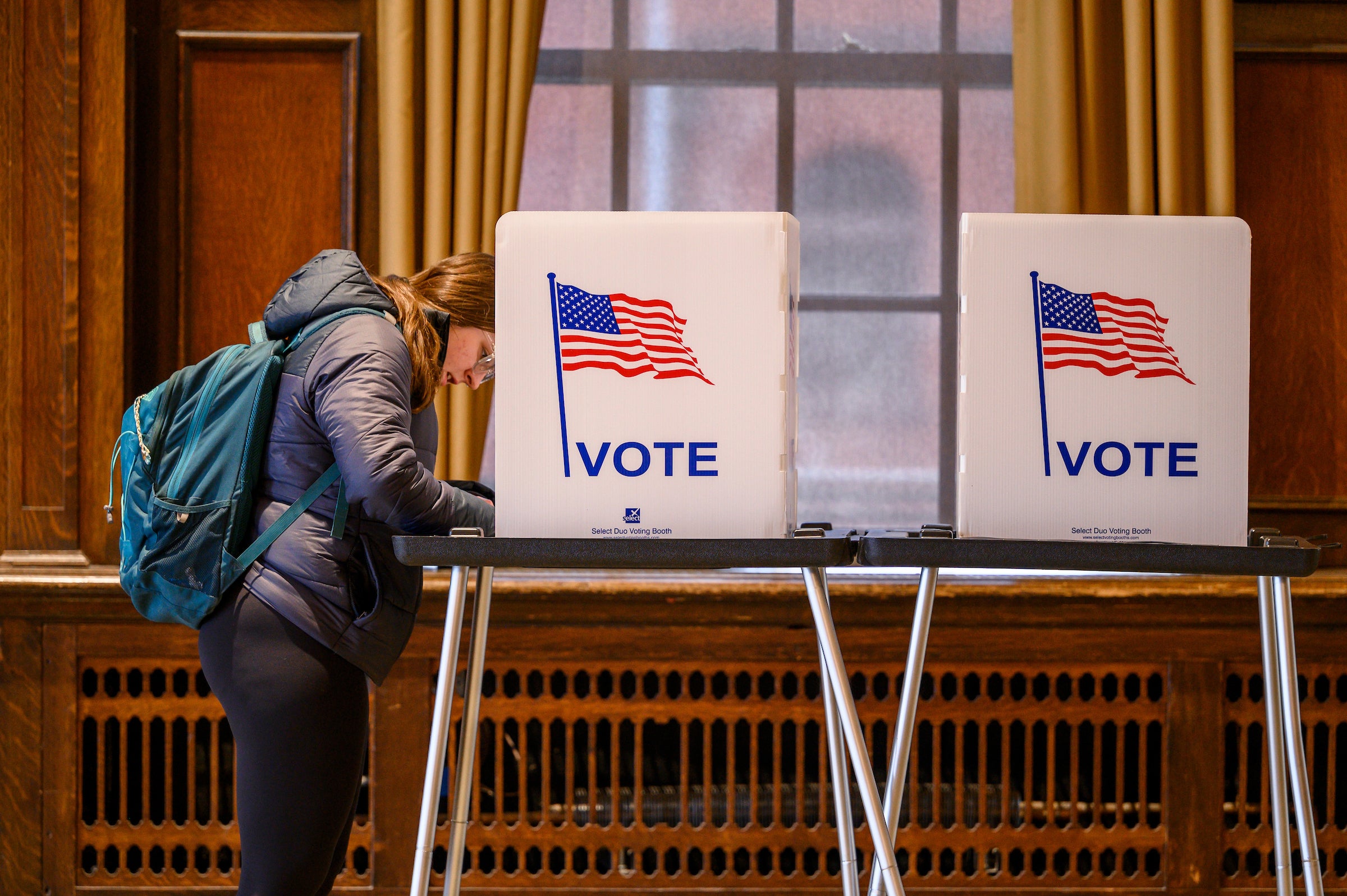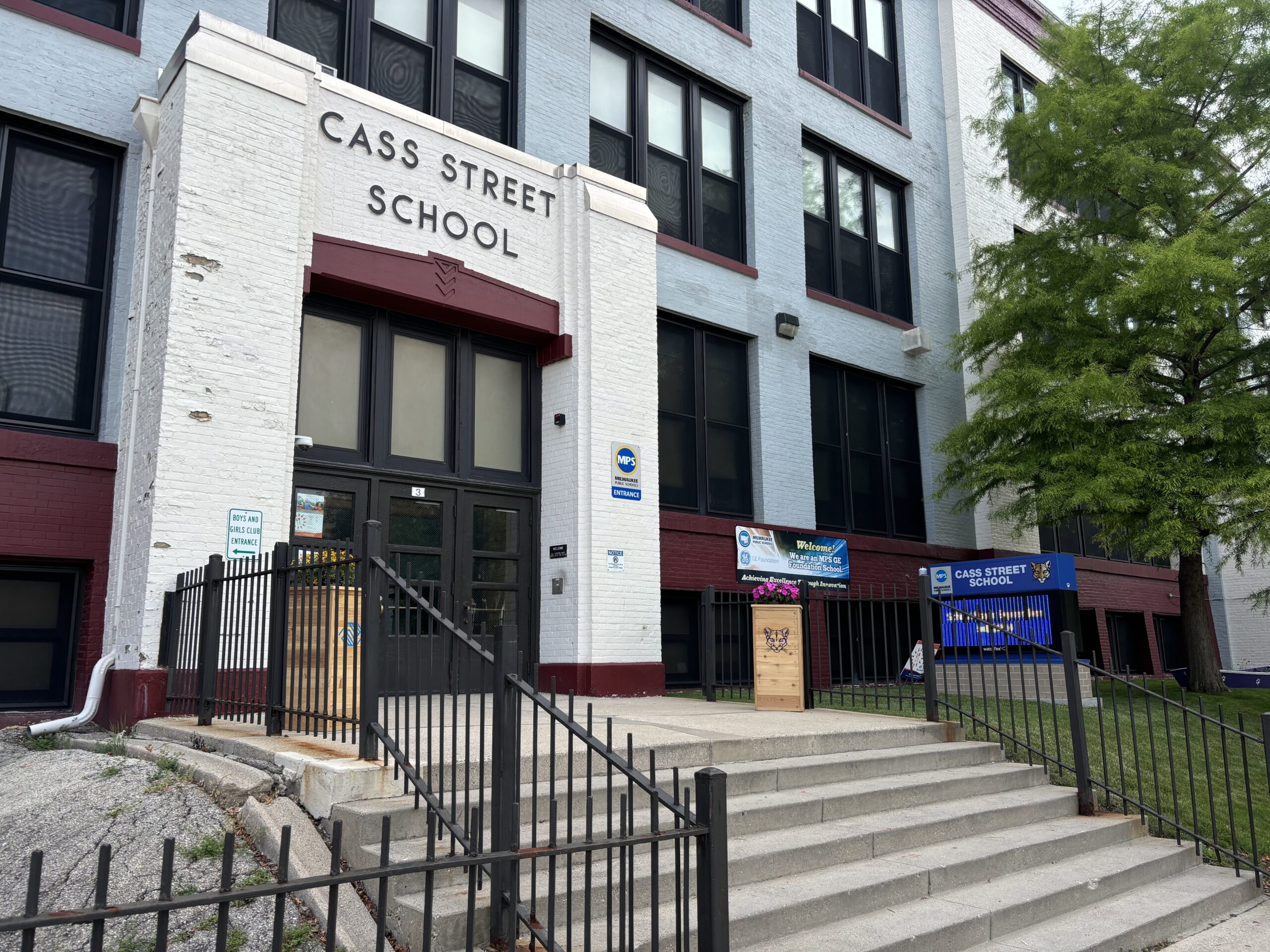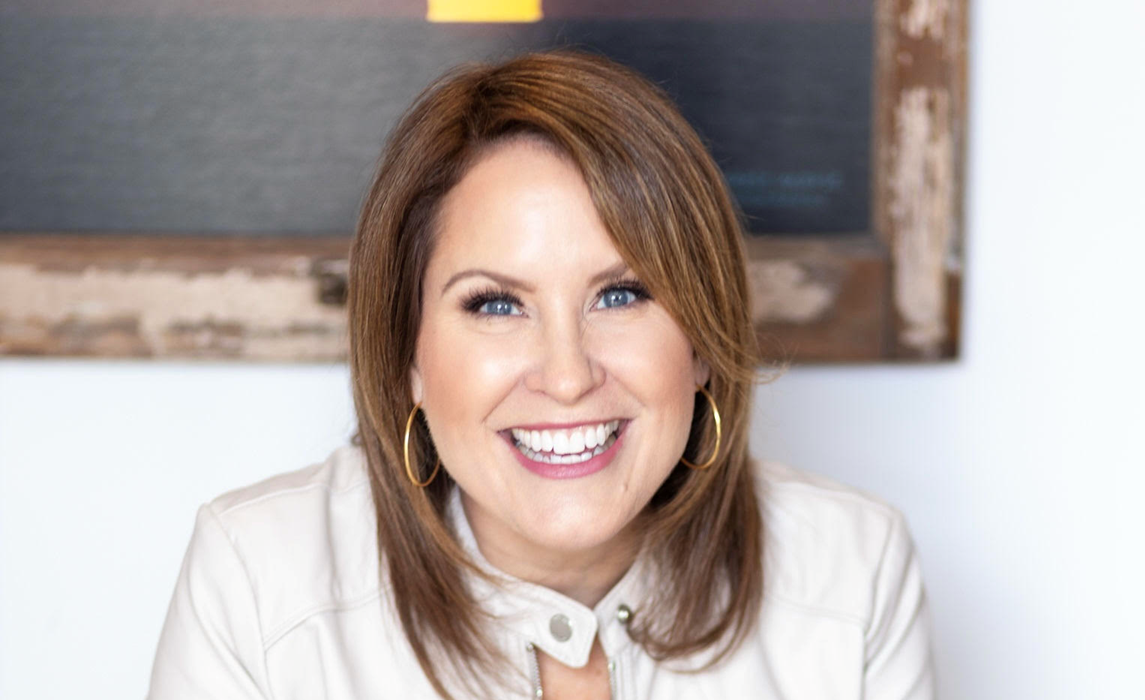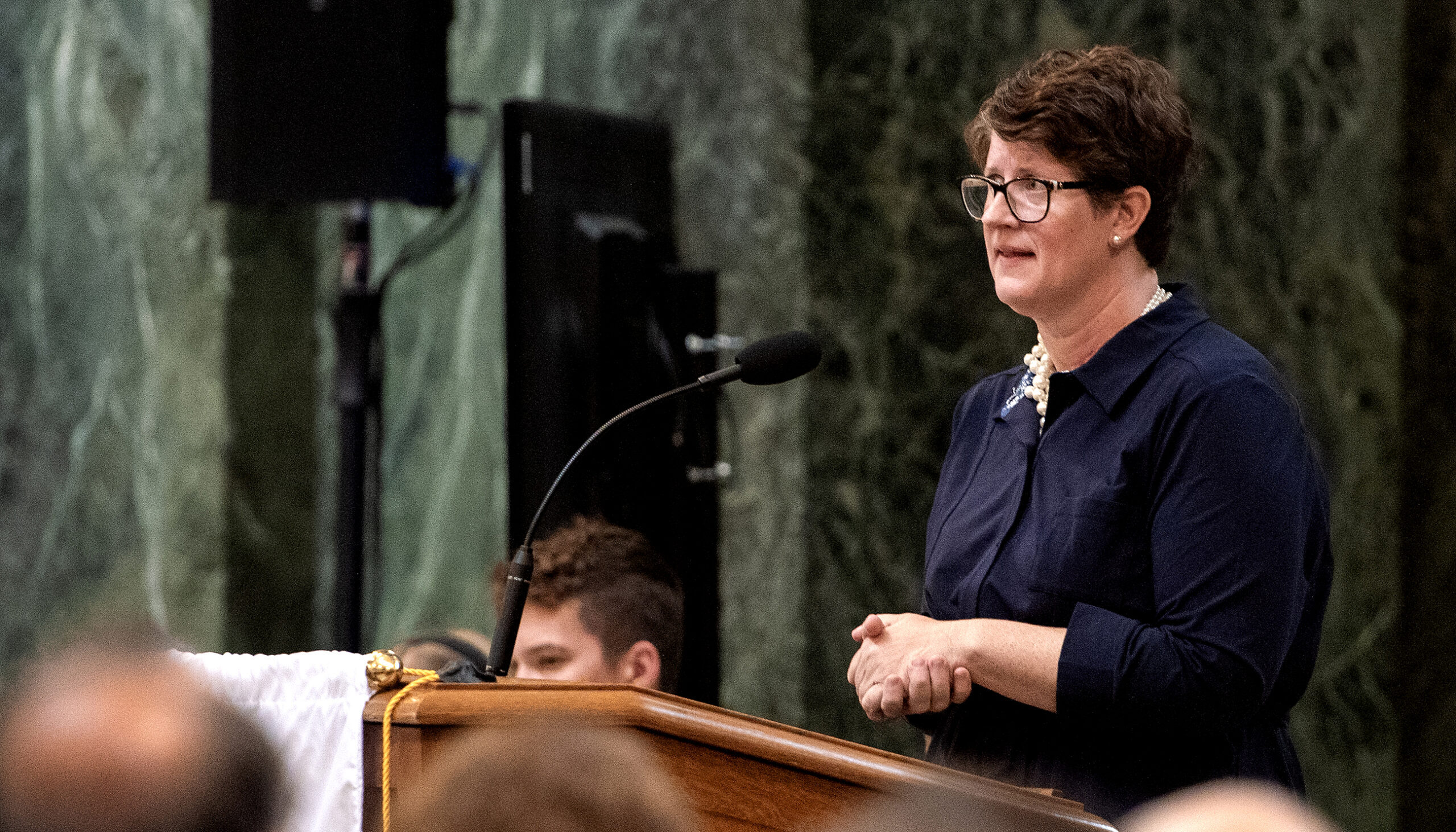Wisconsinites will have their first chance to weigh in on new leadership for the state education agency on Tuesday.
The primary election for the nonpartisan state superintendent position, which heads the Department of Public Instruction and acted as a springboard for Gov. Tony Evers’ candidacy, will take place Feb. 16. There are seven candidates on the ballot. The primary will whittle that down to the two who receive the most votes, who will then go before voters again in April.
The current superintendent, Carolyn Stanford Taylor, will finish out her term in July, and is not seeking reelection.
Stay informed on the latest news
Sign up for WPR’s email newsletter.
Six of the seven candidates spoke with WPR’s “The Morning Show.” More information about individual candidates and links to their full interviews are here.
Turnout for the Tuesday race is likely to lag behind November’s presidential election. Midterm elections tend to see fewer voters than presidential years, and the drop-off continues as races get smaller and more local.
“It’s an off-year election, it’s freezing cold, it is COVID, and it’s February, and we just had an election that was a big deal,” said Lilly Goren, a professor and political scientist at Carroll University. “The more elections you have, the more difficult it is for people to pay attention … at a certain point, that unfortunately has diminishing returns.”
However, this year’s embattled school closures and reopenings, as well as conversations around learning loss and equity, have pushed education issues to the fore — which Goren said may or may not lead to higher turnout, but will likely affect the visibility of whoever ultimately gets the job.
“People are paying some attention to this, and because of the pandemic, and because of some of the tension and conflict over education policy in Wisconsin, this does have a little more saliency and visibility,” she said.
Erica Turner, a University of Wisconsin-Madison education professor who specializes in equity issues, said the incoming superintendent will face steeper-than-usual challenges. Education funding in Wisconsin, as in many states, hadn’t fully recovered from the recession more than a decade ago by the time the pandemic began. With some state revenue sources having taken a hit, and the unexpected costs of managing a pandemic, Turner said the new superintendent will likely have to contend with more limited funding.
“This is an equity issue because it has been the case, and it’s likely to continue to be, that a lot of the cuts will come from equalization aid — efforts to make school funding more equitable,” she said. “For educational equity, you need someone who can be an effective advocate around the budget, and then also will have to prioritize that what cuts happen, and how they happen, happen in an equitable way.”
Wisconsin education policy is driven largely by the Legislature’s decisions, as they pass education laws and allocate funding. Beyond that, education in Wisconsin also skews toward local control, with school boards calling the shots — a dynamic that’s been even more pronounced in the past year as districts have made their decisions about reopening school buildings.
Turner said this means much of the state superintendent’s power lies in setting a tone, and building coalitions to influence state and local policy, rather than calling the shots themselves.
“The superintendent’s hands aren’t tied, but they may need to be more of an organizer of voices across the state, especially around the funding issue,” she said. One of the things she said she’ll be looking for is, “What’s their vision for student and family and community engagement in decision-making around these issues that really matter?”
The state superintendent also plays a major role in interpreting state and federal policy, and how they play out in Wisconsin and at the local level.
Turner said she sees the role as requiring three different skill sets — persuasiveness, especially in working with the governor’s office and the Legislature; coalition-building, organizing and working with partners across a wide spectrum of educational experiences and needs; and the in-the-weeds, bureaucratic work that comes with managing a state department.
The nonpartisan nature of the election, as well as the all-encompassing issue of COVID-19 and schooling, can make it more difficult for each of the seven candidates to distinguish themselves, said Goren.
“You can sort of see slight different shadings in this direction and that direction, but they’re also pretty broad in, ‘We’ve got to get the teachers vaccinated, we need to make sure the parents feel like it’s safe to send their kids back to school,’” she said.
The sheer disruption to education brought by COVID-19 has led some in education — policymakers, superintendents, teachers, school boards, staff — to think about more radical changes to the state’s education policy. Some have suggested changes to how schools are funded. Others note that the disruption in learning, spread unequally across districts and even within classes, may require the state to reimagine testing, readiness, and grade level benchmarks. Many want to see a recognition of the skills students have developed in the past year that don’t show up on tests — like resilience, or a different understanding of history and politics in light of the summer’s racial reckoning and January’s insurrection.
“We want to be able to capture and think about the learning that’s happened in that regard, and also the role of schools in that in terms of social-emotional responses to kids,” said Turner. “We can be thinking about teaching and learning in new and exciting ways, and in ways that aren’t continually enforcing the achievement gap, or what’s actually an opportunity gap, in teaching and schooling.”
Wisconsin Public Radio, © Copyright 2025, Board of Regents of the University of Wisconsin System and Wisconsin Educational Communications Board.
